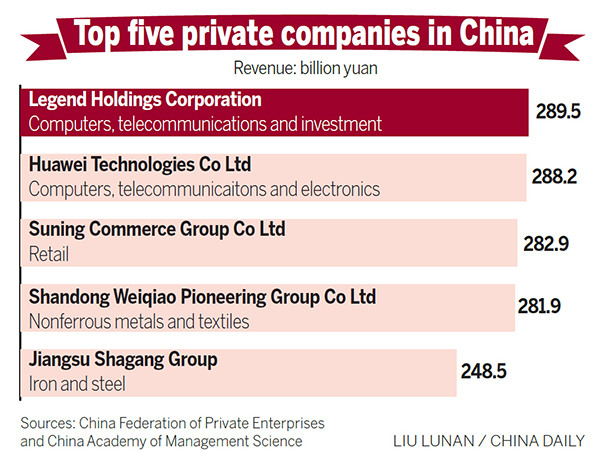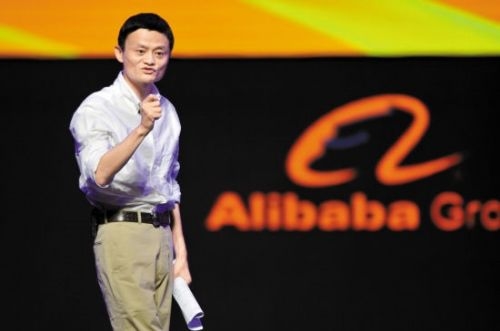Baidu partners with China CITIC Bank in direct banking business
November 18th, 2015China CITIC Bank Corp Ltd confirmed Tuesday that it will collaborate with China's biggest online search engine, Baidu Inc, to build a direct banking business.
China CITIC Bank said it will hold a press conference in Beijing on Wednesday to officially cement the strategic partnership. Beijing-based Baidu said it will participate Wednesday's event with China CITIC Bank but refused to reveal details about the two's cooperation.
Through a working relationship with China CITIC Bank, Baidu is expected to finally enter China's nascent private banking sector. Baidu's rivals- Alibaba Group Holding Ltd and Tencent Holdings Ltd-have already successfully gained private banking licenses by forming similar alliances with different partners.
Baidu hasn't gained a private banking license, but analysts say that in China, to get involved in the direct banking business, which is a bank without any branch network that offers its services remotely via online banking and telephone banking, it's not required to have a private banking license.
Private firms lead in innovation and job creation, says report
November 17th, 2015
China's top 500 private companies have made significant contributions in fostering innovation, creating jobs and tax contributions, a new report said on Monday.
The report, published by the China Federation of Private Enterprises, an industry association, and the China Academy of Management Science, a government think tank, ranked Legend Holdings Corp, the largest shareholder in personal-computer maker Lenovo Group Ltd, as the leading private enterprise in China with operating revenues of 289.5 billion yuan ($45 billion). It was followed by telecom giants Huawei Technologies Co Ltd and retail giant Suning Commerce Group Co Ltd with revenues of 288.2 billion yuan and 282.9 billion yuan, respectively.
Private firms have made an increasingly larger contribution to the economy and made more efforts in innovation, investment and international competitiveness, in addition to job creation and tax contributions, the report said.
Sectors like big data, cloud computing, biology and new materials have tremendous growth potential due to the new trade initiatives like the Silk Road Economic Belt and the 21st Century Maritime Silk Road.
Overall, manufacturing enterprises are still better off than others in terms of growth potential. Sectors like electrical machinery, construction and nonferrous metal metallurgy have done reasonably well, the report said.
Breaking down the numbers, there were 33 nonferrous metal metallurgy companies and 38 iron and steel enterprises in the list. Shandong Weiqiao Pioneering Group Co Ltd, a super-large enterprise that focuses on textiles, garments and dying services as well as thermoelectricity and aluminum, was ranked fourth.
Private enterprises also made further inroads into overseas markets and increased their investments, due to the new opportunities from the Belt and Road Initiative. This year, about 500 companies achieved revenues of $316.7 billion through overseas operations, up 48 percent from a year earlier.
Companies in eastern China accounted for 61 percent of the country's private enterprises, with Zhejiang and Jiangsu provinces taking the most spots. But, companies in central and western regions are catching up, and added 23 companies to the list from last year.
Sun Lijian, vice-dean of the school of economics at Fudan University in Shanghai, said: "Most of the enterprises made it to the list with their own independent innovation. They braced for competition in the marketplace instead of growing on the support of encouraging policies.
"Some leading private companies such as Huawei, and foreign companies such as Samsung Electronics Co Ltd, established leading positions in their sectors by specializing and diversifying their products."
The government should help break the monopolies, open up the market and encourage competition to let private enterprises speed up innovation, Sun said.
Chinese entrepreneurs less satisfied about business situations
November 16th, 2015Chinese entrepreneurs are feeling the pressure from economic slowdown and are less content with their current business situations than previous years, a latest survey showed.
Business owners that are "very satisfied" or "relatively satisfied" about current situations accounted for 28.3 percent of the total surveyed owners, down 6.5 percentage points from a year earlier, according to a survey of more than 2,500 companies by the China Entrepreneurs Survey System.
A third of surveyed business owners said they were not satisfied about the business situations at present.
The average score of their level of satisfaction was 2.9, with 5 being the highest, the survey showed. The figure was lower than those for the previous two years.
More entrepreneurs have a negative view on the current macroeconomic conditions, showing dropping confidence as the economy slows.
China's economy expanded by 6.9 percent year on year in the third quarter of 2015, the lowest quarterly growth in six years.
Lenovo launches new tablet-laptop hybrids to revive PC market
November 10th, 2015The world's largest PC maker Lenovo launched two convertible laptops and a tablet under its Yoga line on Monday to resuscitate demand for personal computer amid growing penetration of mobile devices.
Launched in 2012, Lenovo's Yoga line of laptops were designed to work both as PC and tablet as the growing popularity of smartphones and tablets have contributed to a slowdown in PC sales.
Monday's release includes two laptops with keyboard that can be either folded or detached and a Yoga tablet.
Lenovo's CEO Yang Yuanqing said on Monday that the PC market, valued at 200 billion U.S. dollars, still has potential for growth as some of its essential features cannot be replaced by tablets and smartphones.
"I'm still optimistic about the PC market," said Yang, "there is still a lot of investment going into improving the PC's user experience and to stay relevant, manufacturers need to be committed to innovation."
Yang said though Lenovo is already the world's largest PC maker, it still wants to grow its market share.
Lenovo retains its spot as the world's third largest tablet maker with a global market share of 6.3 percent in the third quarter this year, data from IDC shows.
Alibaba could be planning Hong Kong media raid
November 9th, 2015
Alibaba's founder Jack Ma. Alibaba may be set to make a major foray into the media and entertainment industries.
Alibaba may be set to make a major foray into the media and entertainment industries.
After announcing on Friday it was taking over China's top online video provider in a cash deal, rumors surfaced over the weekend that the mainland-based company is "in discussions" to invest in Hong Kong-based SMCP Group Ltd, which publishes the English-language newspaper South China Morning Post.
On Sunday, a spokesman for Alibaba told China Daily the company does not comment on market rumors. The communications department at SCMP Group did not respond to an inquiry.
The rumor surfaced after SMCP announced on Friday that Wang Xiangwei, the newspaper's editor-in-chief, was stepping down and Tammy Tam, Wang's No 2 since 2012, would take over from Jan 1.
Meanwhile, Shanghai-based mobile news app The Paper reported that Alibaba is in talks to take a stake in Sina Corp, which runs online news portal sina.com.cn and Weibo, the Chinese equivalent of Twitter.
Industry observers said that since June, Alibaba has poured billions of dollars into media organizations, including online video giant Youku Tudou Inc.
Tian Hou, an analyst at TH Capital in Beijing, said Alibaba's media expansion is "very likely". Huang Guofeng, an analyst at the Internet consultancy Analysys International in Beijing, said Alibaba may have a "big vision to enter people's living rooms".
Chinese textile firms look to thrive in new hot spot
November 6th, 2015Vietnam is becoming a "hot spot" for Chinese textile manufacturers when they look to build factories overseas. [Special coverage]
One of the main reasons is that apparel produced in the Southeast Asian country for the United States market will be tariff-free after last month's Trans-Pacific Partnership agreement.
Huafang Co, a textile business in Shandong province, plans to set up a high-end fabric factory in Vietnam with a 700 million yuan ($110 million) investment. This will be the company's first overseas factory.
Another 150 million yuan will be pumped into a research and development center in Vietnam to look into new technologies covering the whole industry chain, including cotton, spinning, weaving and dyeing.
Huafang, which is listed on the Shanghai Stock Exchange, is planning to issue about 120 million shares for corporate investors, with an issuing price of about 7.4 yuan per share. This will help the company raise 900 million yuan to finance its Vietnamese project.
"Before the zero-tariff policy reached by the TPP, many labor-intensive Chinese industries had already shifted to Southeast Asian countries," said Zhang Jianping, a senior researcher at the Institute for International Economic Research under the National Development and Reform Commission. "The labor costs there are four to five times cheaper than in China.
"Here, the country is undergoing an economic transformation. In China's developed coastal regions, high-tech industries are springing up to replace labor-intensive industries," he added. "The trend has been gathering pace, and the new policy will speed up the process."
Vietnam has become a major importer of fabrics and a leading exporter of clothing. But weak domestic production has left local companies struggling to cope with international demand.
That was another key factor in Huafang's decision to set up a manufacturing center in Vietnam. Now the company plans to set up two production lines, although it will take up to three years to build the plant.
Pei Chunqu, former deputy minister of trade and industry in Vietnam, said that in the past decade, the textile industry in the country has been growing slowly.
Luen Thai International Group, which is Hong Kong's largest clothing company, Sanshui Jialida TextileCo, based in Guangdong province, and Vietnam's Vinatex Co are planning to establish a textile industrial park.